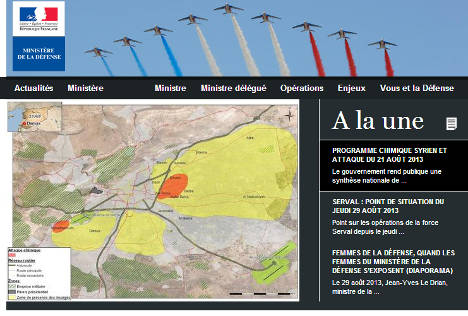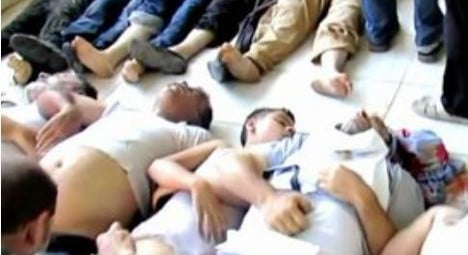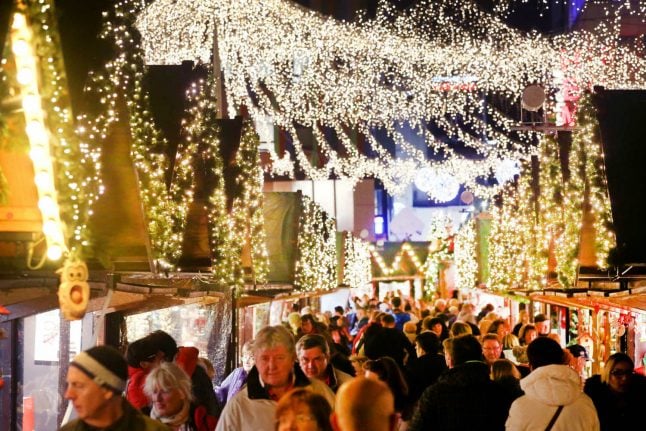Just as French Prime Minister Jean Marc-Ayrault was to trying to convince senior lawmakers from all political parties of the merits of an intervention in Syria, the government began the job of trying to sway the public by releasing harrowing video evidence of last month’s deadly chemical attack in Damascus.
In all, six videos were uploaded late on Monday night onto the Ministry of Defence’s website.
The French government claims the videos have been “authenticated” by French intelligence services, and come with a warning that they contain images which may shock viewers.
The six videos were garnered from a number of sources in Syria including doctors, civilians and members of rebel forces fighting against Bashar al-Assad.
INTERVIEW – "The French understand the British stance on Syria", says the British envoy to Paris
The images show the bodies of children, women and men lined up on a floor. Excerpts also show a child having difficulty breathing and another who is suffering from “uncontrolled muscle movements”.
The Ministry of Defense states the videos were taken on the morning of August 21st, the day a rebel-dominated suburb of Damascus was hit by a massive rocket attack.
The images show victims suffering various “symptoms” without being wounded – proof, according to France, that “chemical weapons were used against the civilian population”.
(The front page of the Ministry of Defense's website is dedicated to Syria attacks)

The videos form part of a dossier of evidence put together by French intelligence services that was declassified on Monday, as part of the Socialist government’s bid to persuade MPs and the public that strikes against the Syrian regime are necessary.
Hollande has vowed to "punish" Assad but has come under pressure not to attack before getting the green light from the French parliament.
On Monday, Assad himself warned France there would be "repercussions" if its forces intervened in Syria.
The report, made public after Prime Minister Jean-Marc Ayrault met with lawmakers, said the "Syrian regime launched an attack on some suburbs of Damascus held by units of the opposition, combining conventional means with the massive use of chemical agents."
It said that based on video reports, French intelligence had counted at least 281 dead but that reports of up to 1,500 killed were consistent with such heavy use of chemical weapons.
"The attack on August 21st could only have been ordered and carried out by the regime," the report said.
Opinion: Hollande is 'playing a high risk game over Syria
"We believe the Syrian opposition does not have the capacity to carry out an operation of such magnitude with chemical agents," it said.
The report said Syria "had one of the biggest operational stocks of chemical weapons," including an arsenal of more than 1,000 tonnes, comprising sarin and mustard gas, and more powerful neurotoxic agents.
If you would like to view the six videos released by France's Ministry of Defence, please note that they contain images some readers might find disturbing.
CLICK HERE for a link to the videos in question.





 Please whitelist us to continue reading.
Please whitelist us to continue reading.
Member comments